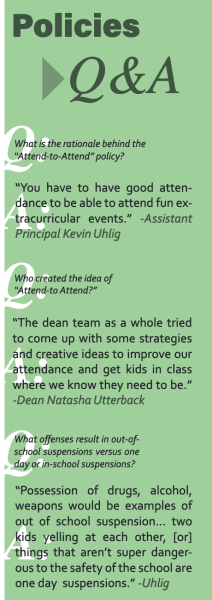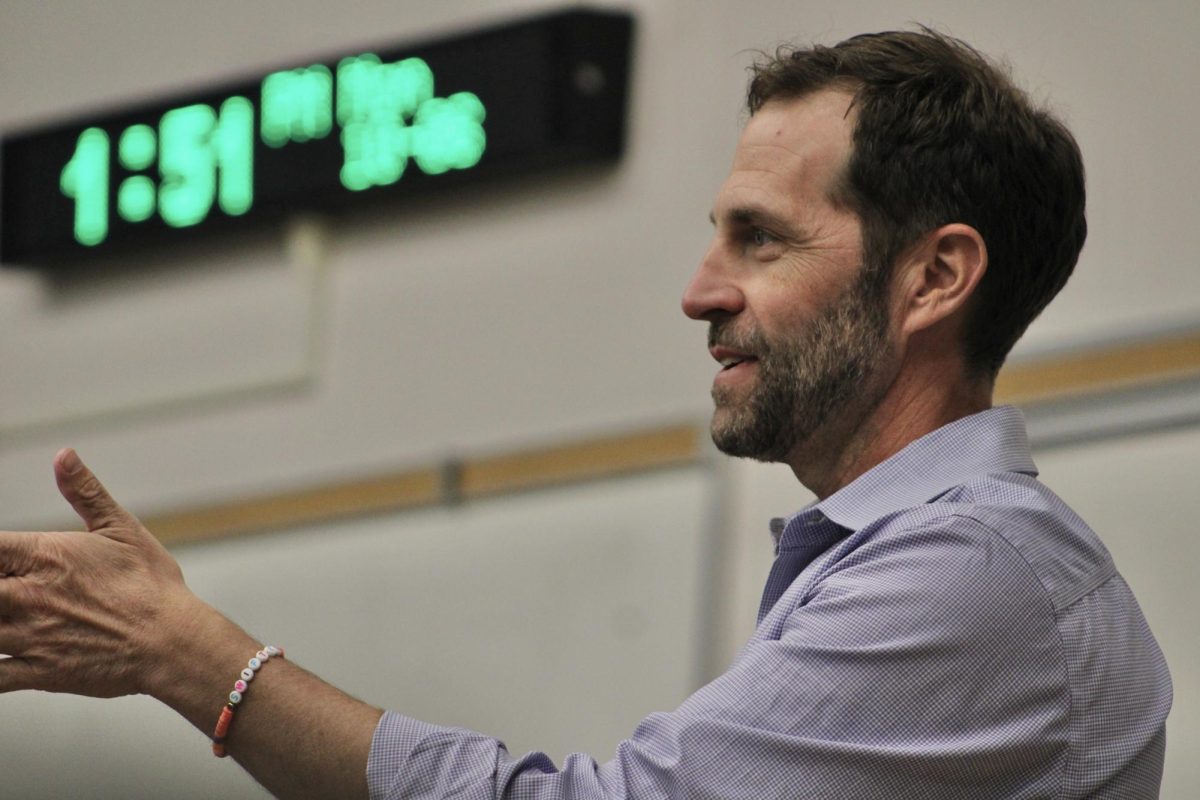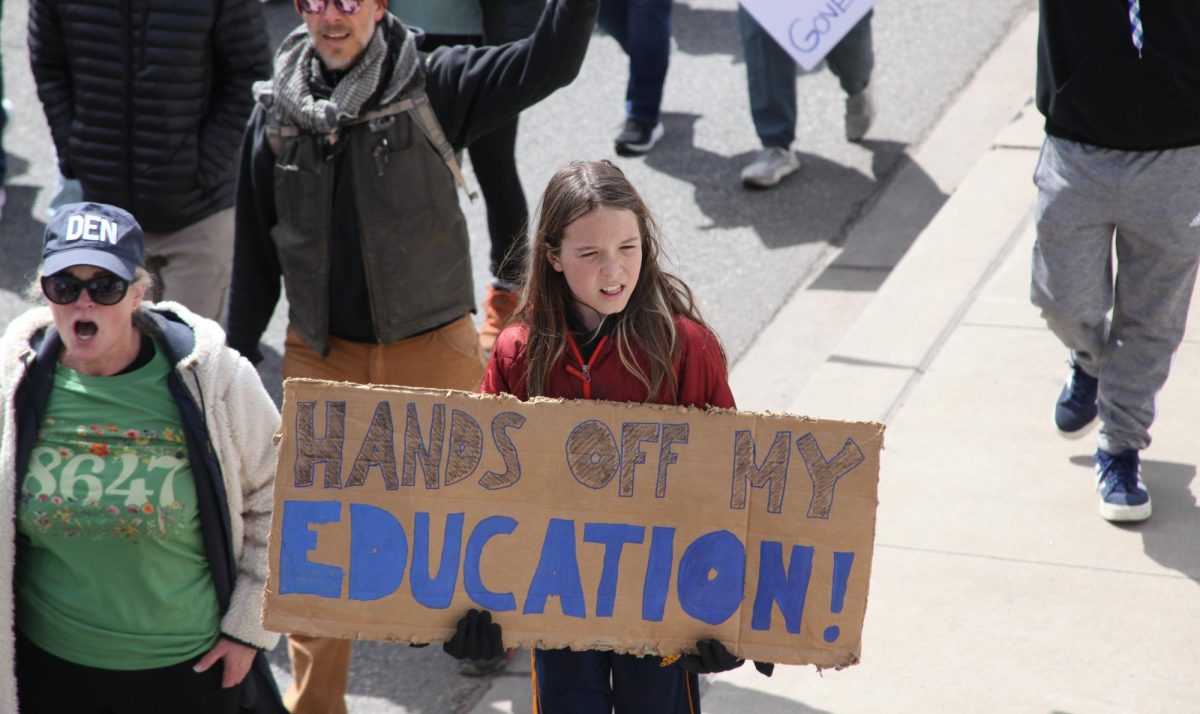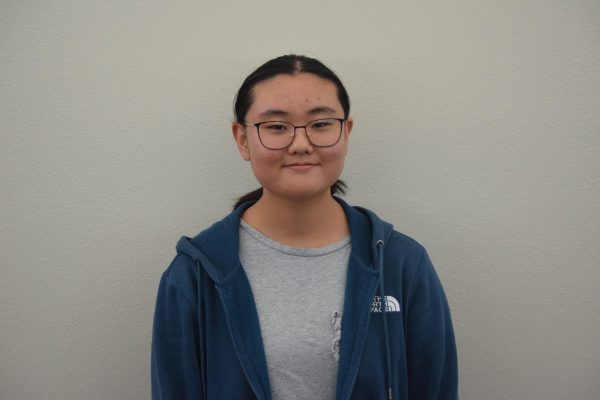Creek’s administrative team implemented “Attend to Attend” (ATA) and In-School Suspension (ISS), two new procedures on Nov. 15 in order to improve class attendance and better the restorative discipline process.
ATA, a cycle repeating each school week, prevents students from going to after school events if they have more than seven tardies or two absences that week. These events can include concerts, sports games, and theater plays.
“We’ve struggled with some kids wanting to come to the fun stuff after school, but they didn’t go to school that day, or they missed a bunch of their classes,” Assistant Principal Kevin Uhlig said. “Students need to be in school so they’re getting an education.”
Some students think it’s beneficial to the student body.
“I think some students who have consistently gotten tardies and absences might be held more accountable,” junior Brielle Bernier said. “People might be more motivated to go to class more if they know there are incentives.”
While attendance at sports games and other events could be affected, Bernier, as a member of Troupe 1730, isn’t concerned for theater performances.
“A large part of our audience is parents, family members, close friends, and theater troupes from other schools,” she said. “Creek students who attend the shows are very appreciated though, and we would always like more students to come.”
Dean and Campus Administrator Natasha Utterback worked with the dean team to craft and enforce the procedure. Because it’s not a district-wide policy, Creek has freedom to fit it to the school’s needs.

“My hope is that eventually, it’ll change our culture a little bit,” Utterback said. “We have a lot of amazing kids here that have big aspirations after high school, and we really want them to understand that being in class and attending on a consistent basis is going to help them in the future.”
Since ATA is so fresh, no analytics have proved that attendance has improved yet, but security have already used the “No Attend List” at events, which appears as a sticker on a student’s Minga digital ID.
“Deans will hold students accountable if they’re not in classes,” Utterback said. “So this is just another strategy that we’re going to use. I just hope that students are paying attention to their attendance, [and] taking it more seriously than they have in the past.”
Meanwhile, Uhlig’s focus on discipline and mental health made him a primary contributor to the ISS system. Instead of being sent home for a one day suspension, students serve it in school, without phones and supervised by deans.
“Instead of them just going home and not doing anything, sleeping or playing video games, they’re here and they’re doing work, they’re reflecting on the mistake that they [made] that led them to get this suspension,” Uhlig said.
The special ISS schedule, covering all eight periods, gives time for make-up work, testing, reflection, and trash cleanup.
“They don’t get the freedom to hang out with their friends, but they are working. They are staying on top of their tests,” Uhlig said. “The hope is it helps kids stay on top of their grades, improve their grades, and not fall behind.”
Freshman Maya Jovan thinks it’s smart to include a community service portion for campus trash cleanup.
“I think it’s actually really smart to help them do community work as well, because it can prove that they can get along in their community so they won’t be back in suspension again,” she said.
Jovan also believes ISS could be improved by letting students go to a short portion of class so they are on the same page as teachers. The system doesn’t allow them to leave the classroom without supervision.
Dean Brock Felchle is one of the personnel working with ISS participants throughout the day, assuring that they are disciplined and productive.
“The biggest outcome goal for in school suspension is we want kids to be held accountable for their actions,” he said. “We want them to learn from their behavior and hopefully not repeat that. But ultimately, we also want them to stay in school, because we know this is the best place for kids.”
Uhlig stressed the importance of the reflection period, where students work with counselors Chris Win and Sarah White to learn what they can do better in the future.
“I think there’s benefit in hearing from other students, and even if they’re not at in-school suspension for the same reasons, the broader picture of decision making can be powerful to hear from other peers and students,” White said.









